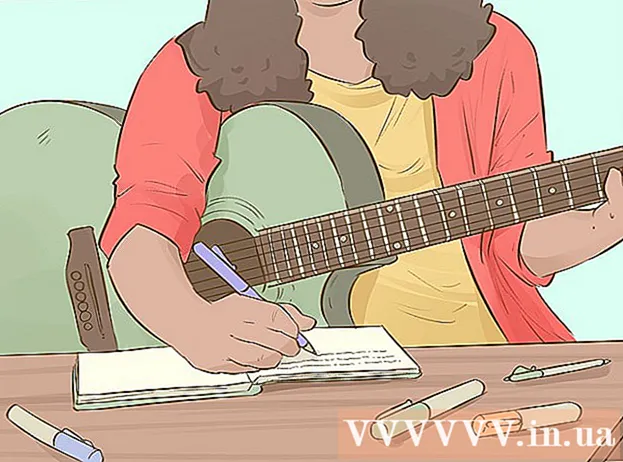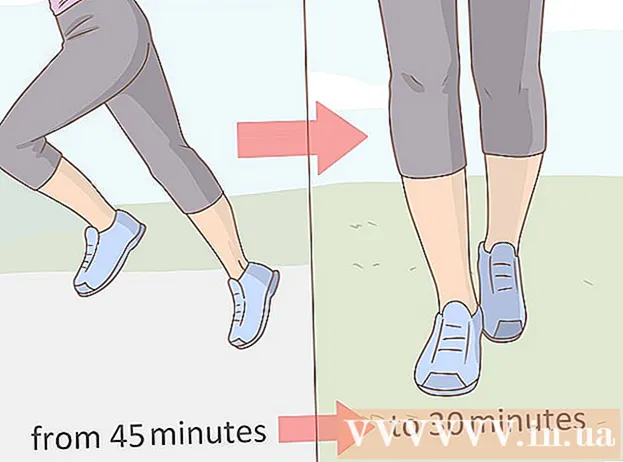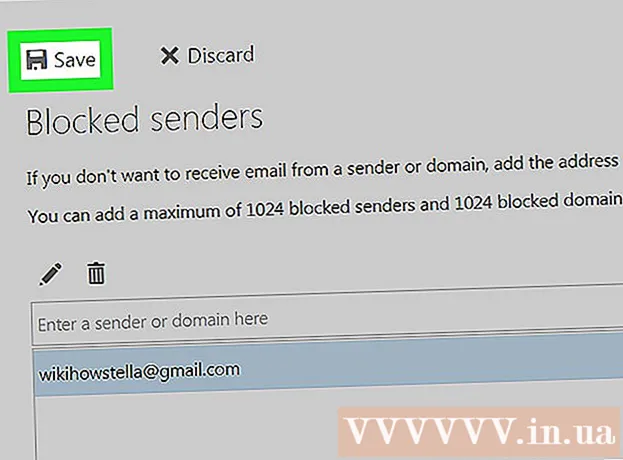Author:
Mark Sanchez
Date Of Creation:
8 January 2021
Update Date:
1 July 2024

Content
There are many foods in the human diet that are dangerous to dogs. It is important to remember which food can cause serious health problems in these pets in order to prevent unknowingly poisoning.
Steps
 1 Remember that even if a particular food is suitable for human consumption, it can be toxic to the dog. Some foods that humans consume can be fatal in dogs.
1 Remember that even if a particular food is suitable for human consumption, it can be toxic to the dog. Some foods that humans consume can be fatal in dogs. - 2 Remember the groups of dangerous products.
- Chocolate contains theobromine (methylxanthine derivative). This substance causes vomiting, diarrhea, heavy breathing, frequent urination, thirst, seizures, hyperactivity, heart palpitations and can be fatal. Dark chocolate, chocolate icing and cocoa are especially dangerous.White chocolate does not have these effects, but high levels of fat and sugar are not good for your dog.

- Coffee (caffeine) produces the same symptoms as when consuming chocolate. Caffeine, like theobromine, is a methylxanthine derivative.

- Any alcohol - beer, wine, alcoholic products - can be fatal for a dog. Alcohol is a depressant that slows down the liver and brain of a dog (that is, it has the same effect on a dog as it does on a person). The smaller the dog, the stronger the effect. Dogs are smaller than humans, so they are highly susceptible to alcohol, and a very small amount of alcohol is enough to damage the vital organs of the animal. Alcohol causes vomiting, diarrhea, central nervous system upset, coordination problems, shortness of breath, coma and death.

- Onion and garlic in any form (raw, dry, cooked) contain thiosulfate, which irritates the digestive system of the animal.
A relatively large serving (600-800 g) at one meal or over several days can harm red blood cells and cause hemolytic anemia.
- Macadamia nuts (raw, roasted, and the oil from these nuts) contain an unknown toxin that has a negative effect on the motor functions of the dog's body and causes weakness, heavy breathing, tremors and swelling of the limbs. These nuts are often added to cookies, so watch what you give your pet.

- Grapes and raisins can lead to kidney failure. It is still unknown what triggers this reaction. Watch what your dog eats because raisins are often found in cakes and cookies.

- Avocado... The substance persin, found in avocados, provokes vomiting, diarrhea and sometimes even a heart attack.

- Raw yeast dough... Yeast continues to build up in the dog's stomach, causing painful bloating, gas, and rupture of the intestines or stomach.
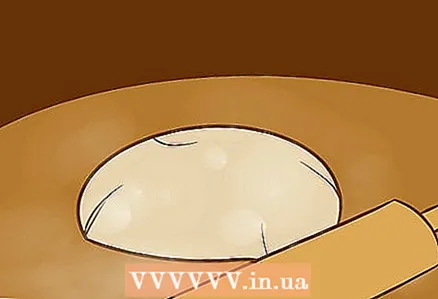
- Raw meat and eggs... While there is still debate about the importance of raw meat in a dog's diet, raw meat has been shown to contain more disease-causing bacteria than cooked dog food. Meat and eggs should be handled with care to avoid contamination of the dog with Salmonella bacteria and E. coli. Raw eggs contain a special enzyme (avidin) that leads to skin and coat problems in dogs.

- Milk... Due to the fact that the dog's body does not produce the enzyme responsible for the digestion of milk, the use of this product can cause bloating, gas, diarrhea and other disorders of the digestive tract.

- Xylitol... This sweetener causes liver failure due to excess insulin, vomiting, lethargy, and poor motor coordination. Liver failure occurs very quickly - in just a few days. Be careful with this substance as it is found in many foods, including candy, gum, toothpaste, and baked goods.
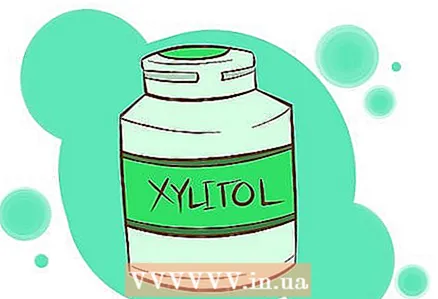
- Bones may lead to suffocation. They can also split into small pieces and damage the digestive tract. Give your dog only large bones that will be difficult to split into small pieces, or imitation bones ..

- Corn cobs - This is one of the common causes of intestinal blockages. The dog bites off a piece of the cob and swallows it. The corn kernels are digested and the base of the ear gets stuck in the intestines. Veterinarians are often faced with this problem, and it is usually possible to solve it only by surgery.
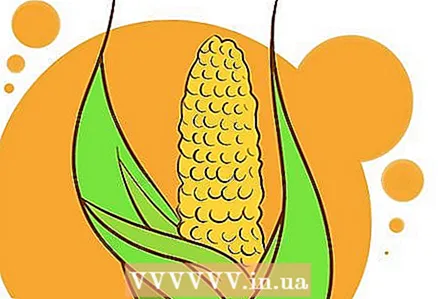
- In red fish and in cod, parasites are often found that do not die even after heat treatment. They are not dangerous to humans, but they can harm the dog.
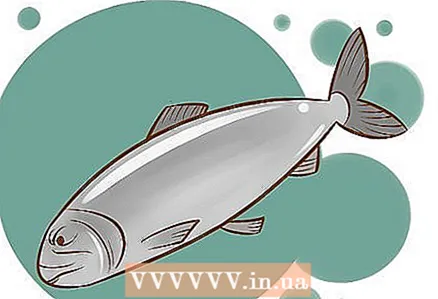
- Ham is life-threatening for some breeds (eg terriers), but it is not recommended for other dogs either. This also applies to the bones of the ham.
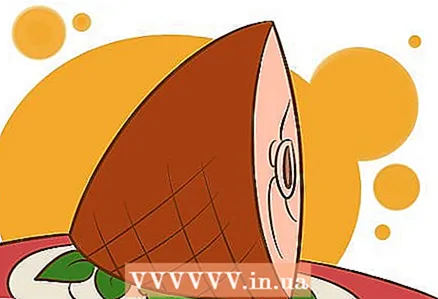
- Chocolate contains theobromine (methylxanthine derivative). This substance causes vomiting, diarrhea, heavy breathing, frequent urination, thirst, seizures, hyperactivity, heart palpitations and can be fatal. Dark chocolate, chocolate icing and cocoa are especially dangerous.White chocolate does not have these effects, but high levels of fat and sugar are not good for your dog.
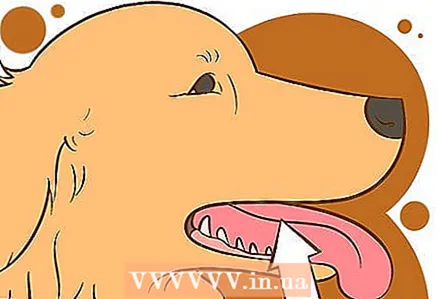 3 Chicken bones can get stuck in the mouth.
3 Chicken bones can get stuck in the mouth. 4 Check carefully the food you give your dog. Many ingredients are hidden in biscuits, breads, baked goods, canned goods, and other prepared foods. It is important to understand what you are giving your dog to avoid health problems.
4 Check carefully the food you give your dog. Many ingredients are hidden in biscuits, breads, baked goods, canned goods, and other prepared foods. It is important to understand what you are giving your dog to avoid health problems. 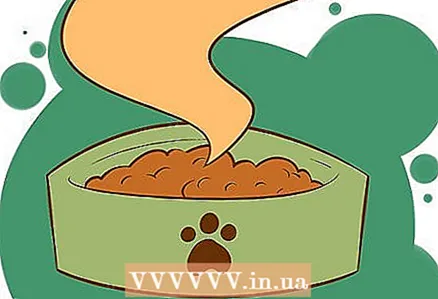 5 Create a healthy and balanced diet for your dog. Find out what food is recommended for your breed and take your dog to the vet regularly.
5 Create a healthy and balanced diet for your dog. Find out what food is recommended for your breed and take your dog to the vet regularly. 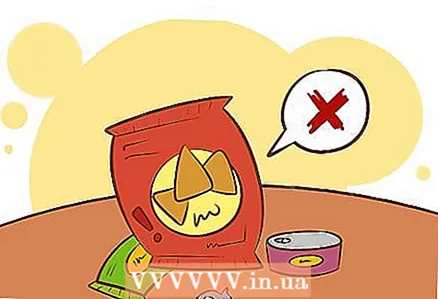 6 Try to give your dog something from your table as little as possible. This can spoil the dog and form a bad habit in the person as they stop distinguishing between human and dog food.
6 Try to give your dog something from your table as little as possible. This can spoil the dog and form a bad habit in the person as they stop distinguishing between human and dog food.  7 If you notice signs of poisoning in your dog (weakness, loss of coordination, lethargy, foaming at the mouth, or other unusual behavior) after eating, contact your veterinarian immediately. The delay can be fatal, so don't waste your time.
7 If you notice signs of poisoning in your dog (weakness, loss of coordination, lethargy, foaming at the mouth, or other unusual behavior) after eating, contact your veterinarian immediately. The delay can be fatal, so don't waste your time. 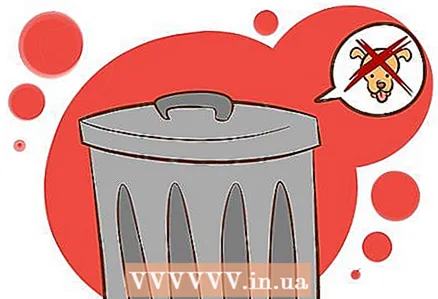 8 Don't let your dog eat trash. This can lead to infection and dispatch.
8 Don't let your dog eat trash. This can lead to infection and dispatch.
Tips
- If you are in doubt about whether a particular food will work for your dog, do not give the food to the animal. Better to play it safe and avoid a visit to the vet.
- Many natural dog food supplements contain garlic for natural flea prevention, but remember that garlic is dangerous.
- Take medication with caution. If you drop a tablet on the floor, pick it up immediately to prevent your dog from swallowing it. Look for small items on the floor, between couch cushions, and other places the dog can reach so that the animal does not accidentally eat them.
- Show the children this article and explain which foods should not be given to a pet.
- Bread should only be given to dogs in small quantities.
- Too much of any food can induce vomiting.
- If your dog asks for food while you are eating, ignore it and it will lie on the floor or move away from the table. You can give your dog some food and then tell him to lie down.
- Prepare food for your dog ahead of time and train him to eat the prepared food. Many trainers train dogs not only to go to the toilet on the street, but also to eat correctly, and such training is not very expensive.
Warnings
- Remember that once you give your dog a junk food and nothing happens to the animal, that doesn't mean you can continue to feed the dog that food. Many substances accumulate in the body, and it depends on the amount of certain substances whether the dog's body can cope with the poison or not.
- Don't let your dog eat anything from the ground outside.
- Always hide any food and household waste safely so your dog cannot eat it.
- Take your dog to the vet immediately if you notice signs of poisoning or any of the symptoms described in this article.
- Dogs are not wild animals. Most breeds are bred so that the dog lives under the supervision of a person. Although in theory the dog maybe surviving on the food of wild animals, she will live longer and be healthier if she is fed a balanced diet.

